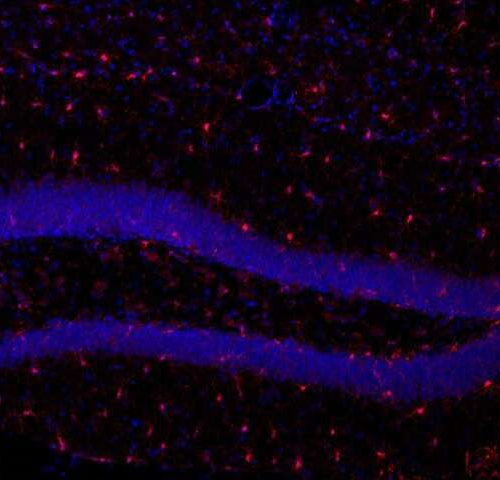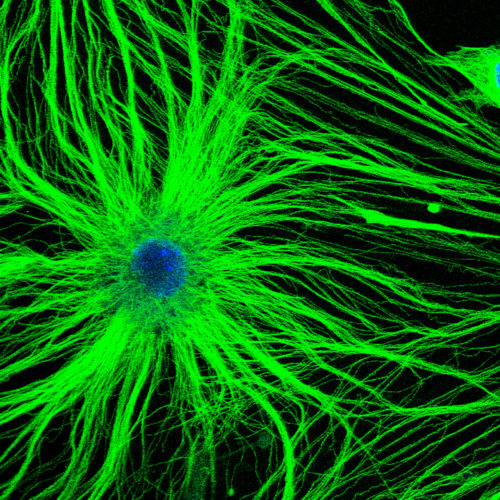by Center for Genomic Regulation Research published today in Science Advances sheds new light on the molecular machinery that enables the shape, growth and movement of neurons. It is the first time scientists have revealed how the brain shuttles genetic code within its cells, a process believed to be crucial for the formation and storage...
Tag: <span>brain cells</span>
Study in mice: Brain cells long thought of as passive play key role in memory
by Mark Dallas, The Conversation Microglia are resident immune cells in your brain that act as first responders, always on the lookout for trouble. Accounting for about 10% of our brain cells, they were historically thought of as passive bystanders in the brain until injury or infection kicked them into action. These cells were first...
Prescription drug improves symptoms of autism by targeting brain’s chemical messengers
UNIVERSITY OF CAMBRIDGE Bumetanide – a prescription drug for oedema (the build-up of fluid in the body) – improves some of the symptoms in young children with autism spectrum disorders and has no significant side effects, according to a new study from researchers in China and the UK. Published today in Translational Psychiatry, the study demonstrates for the first time that the drug improves the symptoms by decreasing the ratio...
Glial Brain Cells, Long in Neurons’ Shadow, Reveal Hidden Powers
The glial cells of the nervous system have been eclipsed in importance by neurons for decades. But glia are turning out to be central to many neurological functions, including pain perception. The sting of a paper cut or the throb of a dog bite is perceived through the skin, where cells react to mechanical forces and send...
Controlling molecular glue protects connections between brain cells
by University of Queensland A way in which some connections between brain cells can resist degeneration—a hallmark of traumatic brain injuries and neurodegenerative diseases—has been discovered by researchers at The University of Queensland. Dr. Sean Coakley and Professor Massimo Hilliard from UQ’s Queensland Brain Institute Clem Jones Centre for Ageing Dementia Research uncovered a way...
Brain receptor that regulates body heat may also help accelerate weight loss
by The Scripps Research Institute The brain mechanism that enables us to maintain a constant body temperature may also be the key to rapid weight loss, a new study finds. In experiments involving mice that were given a calorie-restricted diet, scientists at Scripps Research discovered that blocking a brain receptor that normally regulates body heat...
Mapping the relay networks of our brain
by VIB (the Flanders Institute for Biotechnology) A team of scientists led by Karl Farrow at NeuroElectronics Research Flanders (NERF, empowered by imec, KU Leuven and VIB) is unraveling how our brain processes visual information. They identified specific roles for distinct neuronal cell types in passing on information from the eye to downstream brain regions...
Study: Rapamycin prevents age-related brain vascular deterioration
UNIVERSITY OF TEXAS HEALTH SCIENCE CENTER AT SAN ANTONIO A just-released study by UT Health San Antonio and collaborating institutions shows age-related decreases in blood flow to the brain and memory loss can be modified with the drug rapamycin. This finding, if furthered, holds implications for aging in general and perhaps offers an avenue to...
Stress hormone helps control the circadian rhythm of brain cells
by University of Copenhagen As day turns into night, and night turns into day, the vast majority of living organisms follow a fixed circadian rhythm that controls everything from sleep needs to body temperature. This internal clock is found in everything from bacteria to humans and is controlled by some very distinct hereditary genes, known...
Critics challenge study’s finding that water fluoridation damages children’s IQ
by Catherine Carstairs, The Conversation A recent study showed that community water fluoridation was associated with lower IQ scores in young children. Opponents of water fluoridation jumped on the study, claiming that it confirms the dangers of fluoride on the developing brain. Since then, a number of critics have pointed out that the differences in...



